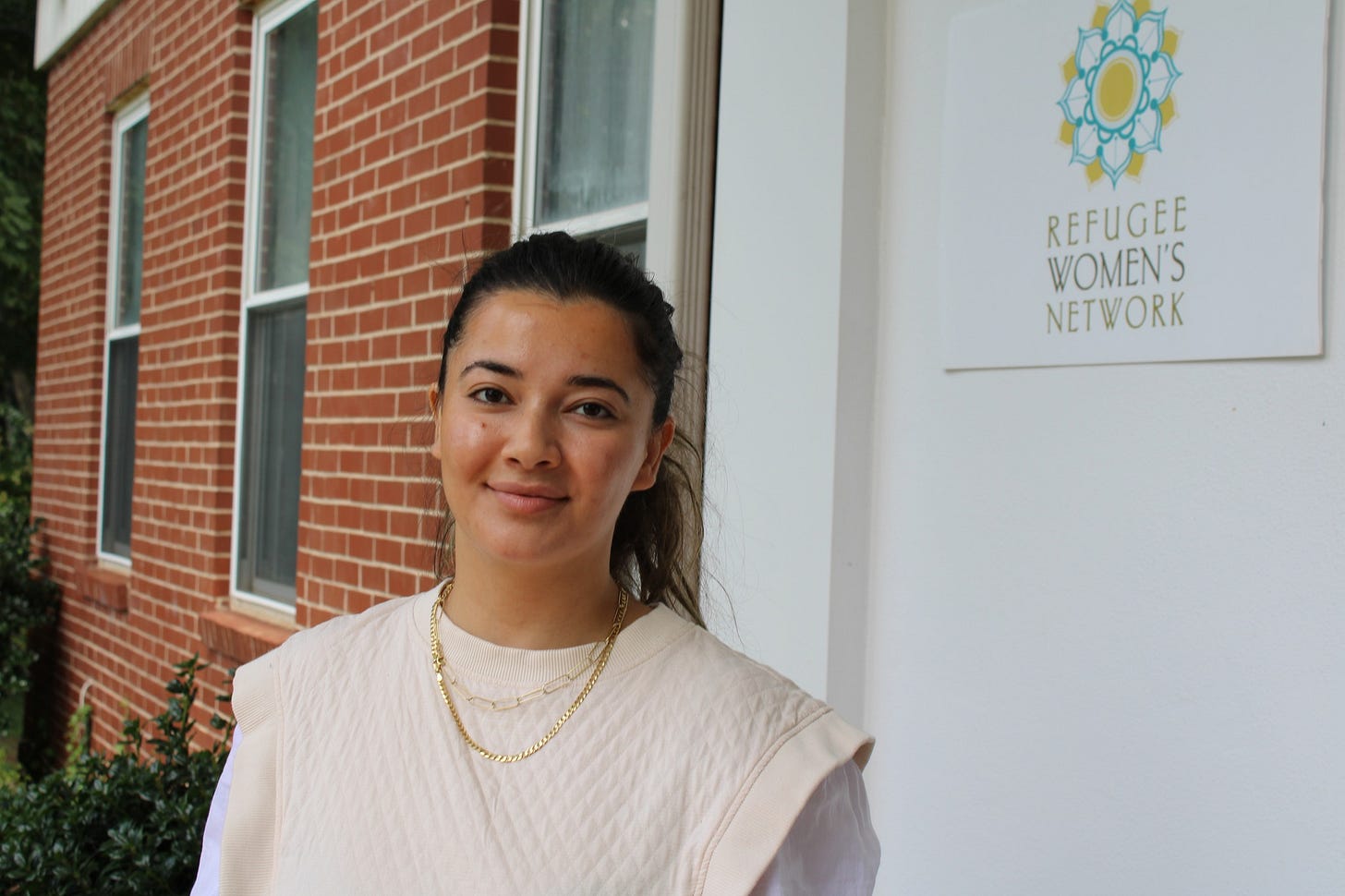“A lot of families, that first job they get, they often get stuck in…”
Marjan Nadir is among those in Atlanta working to make sure refugees have more long term employment options than stocking boxes at Amazon warehouses.
Marjan Nadir was 9-years-old when she moved into an apartment complex in Clarkston with her grandmother, mother, and younger brother. Her most immediate concerns were typical of a lot of 9-year-olds - learning how to read at school, playing with kids in her neighborhood, and checking out the pool at the apartment complex. She was oblivious, she said, to the momentous changes her family had been through over the course of just a few years.
Marjan’s mother had trained and worked as a pediatrician in Kabul. When the Taliban was gaining power in the mid 1990's and it was clear she would no longer be able to work, she moved the family across the border to Peshawar, Pakistan. There, she opened a clinic and started seeing patients. But that wasn’t all she did - she would also cross back over to Afghanistan so she could deliver babies and provide OB care to women, who preferred women doctors (of which there were few since the Taliban came to power). Her work was fulfilling, important, and intense, to say the least.
But Marjan says her mother was targeted for that work - which is what prompted her to seek asylum in the U.S. The family arrived in metro Atlanta in May of 2000.
Once here, Marjan said her mother did what she could to sustain her family. The process of becoming certified to practice medicine was long and tedious. As a single mother of two small children with the responsibility of bringing in an income right away - she just didn’t have the time.
Instead, she got a customer service job at the Atlanta Decorative Arts Center, an interior design firm, where she worked for almost a decade. Before she learned how to drive, she relied on public transportation to get to work - a journey of 1.5 hours each way, said Marjan. “I think the adjustment was really difficult…she went from being a pediatrician to having to work in customer service…they were very kind and offered a lot of flexibility, but at the end of the day, it's really a huge shift.”
Seeing her mother navigate such a dramatic career change, in a new country, had more of an impact on Marjan than she herself realized. She had taken a sabbatical from her job at an aviation company, when she dug up one of her papers from high school. What she wanted to do with her life was articulated so clearly by her 10th grade self - she wanted to help refugee women. In 2019 she got a job at the Refugee Women’s Network (RWN), where she is now the Economic Empowerment Manager. Her primary focus is providing women with the training and resources they need to become financially sustainable and develop long term careers. “It really all stemmed from making sure no other woman was taken away from her experience or education, just because of lack of support or resources or language.”

But securing a job that’s on par with one’s credentials doesn’t usually happen right away, if at all. Many of the Afghans who have arrived here in the last year have secured jobs in Amazon warehouses or meat processing facilities.
Marjan’s two cousins, who now live in Atlanta, were among them. They had both been going to university in Kabul - one was studying accounting and the other was studying engineering. They now have jobs at H&M and at an Amazon warehouse.
“A lot of families, that first job they get, they often get stuck in. It’s because once your bills become tied to something, it's hard to step away from it,” said Marjan.
To stop that from happening requires conscious effort, and even, intervention. RWN and resettlement agencies in the area provide training and certification programs that are set up to put people on a path towards developing fulfilling careers.
Najib Zahedi works at a warehouse during the day, but he's also been developing a wood carving business on the side: Ariana Wood Carving. He's been able to learn more about online marketing through RWN, and hopes, at some point, that the business can become his full time job.

Another RWN client was a doctor in Afghanistan. She’s now on the path to becoming a teacher. “One of the things I asked her was, are you comfortable with this? It’s different from what you’re used to. She was like, actually, I really wanted to also go into teaching back home. And it's really great that I'm able to do it," said Marjan.
“So maybe you can't create an exact parallel, but yes, there are these resources, these programs…so that they're not ending up in a mundane job, where they're now able to do something that they love, even if it's a little bit different."




